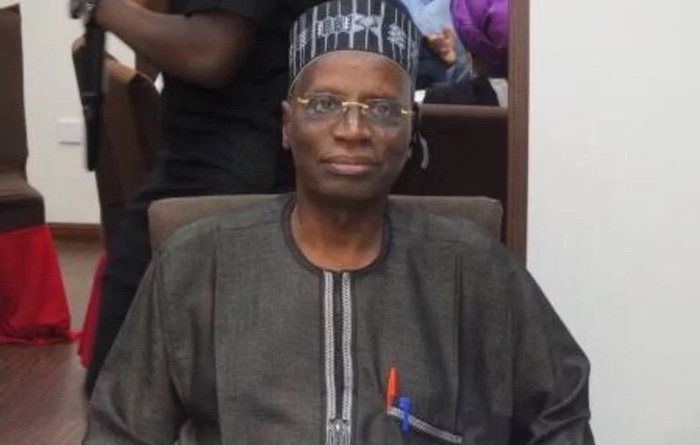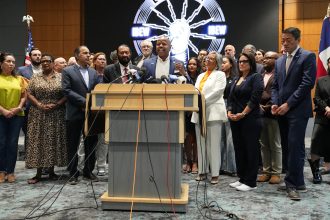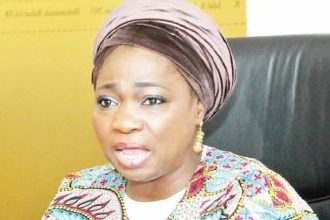A former Minister of National Planning under the President Goodluck Jonathan administration, Dr. Shamsuddeen Usman, has lamented what he described as the “collapse” of the social contract between Nigerians and the state.
The former minister accused Nigerian political leaders of focusing more on themselves rather than the welfare of the common man.
Speaking as a panelist on Thursday night at the Development as Attitude: A National Dialogue Series in Kaduna, Usman said Nigeria had made some gains in its democratic journey but failed to build the substance of governance—integrity, accountability, citizen participation and law and order.
The dialogue, held at the Arewa House, Ungwan Sarki, Kaduna, was organised by the Nigerian Economic Summit Group in partnership with the Gates Foundation under the Nigerian Hamilton Project.
It brought together policymakers, academics, business leaders and civil society actors to reflect on the cultural, institutional and attitudinal drivers of national development.
Anchoring the discussions was Prof. Osita Ogbu, Co-Chair of the NESG National Economic Advisory Council and author of Development as Attitude who argued that true progress is as much about a shift in mindset as it is about economics.
“Development requires a cultural shift—from dependence to responsibility, from rhetoric to action.
“Until leaders and citizens alike embrace that shift, our policies will remain aspirations rather than realities,” he said.
In his intervention, the former minister added that Nigeria’s democracy had survived 26 years of transitions across governments, but noted that the core of governance was hollow.
“We achieved a lot of progress, even in terms of the fallacies of democracy.
“We have had 26 years of continuous changing over from one government to another, with the instruments of democracy—the three tiers of government, the three arms of government, elections, political parties—all in place.
“That is the form. But what about the substance? Unfortunately, that is where the challenge lies. There is no substance,” he said.
He maintained the absence of integrity, accountability and active citizen participation had rendered the system ineffective.
“The citizen has remained almost like a non-factor. In a book I published last year, I wrote that the social contract between the citizen and the state has broken down.
“In other countries, government provides security, education and healthcare in return for taxes and civic responsibility. Unfortunately, we have lost that in Nigeria,” he said.
While painting a bleak picture, Usman acknowledged that Nigeria had recorded some democratic milestones, including the defeat of the controversial ‘third term’ campaign in 2006, the political system’s ability to avert crises within the Federal Executive Council, and the peaceful concession of defeat by a sitting president in 2015.
“These are examples of progress,. But the negative side is that politics remains about the politicians.
“Nobody is thinking of the citizens. Nobody is concerned about what citizens get in terms of fundamentals—security, services, dignity,” he said.
He added that such neglect undermines development, warning that “politics without people is politics without peace.”
The former minister also decried the weakening of law and order, citing what he described as the “tragedy” of unresolved high-profile corruption and political scandals.
“When economists sit down and do our calculations, we take certain things for granted, including peace and the rule of law.
“But in Nigeria, there is neither law nor order. That is why people can get away with wrongdoings without accountability. It is a great tragedy,” he said.
Usman, however, noted that the real test lies in re-establishing the social contract that anchors democracy in mutual trust.
“Until we restore the social contract, citizens will continue to distrust leaders, leaders will continue to ignore citizens, and development will remain elusive. Nigeria cannot afford that cycle any longer,” he warned.
Earlier in his welcome remarks, Kaduna State Governor, Uba Sani, said the Hamilton Project’s message of responsibility and attitudinal change aligned with Kaduna’s reform agenda.
“True progress is not only about financial management or resource allocation,” he said.
“It depends on the values and actions of both leaders and citizens. The Hamilton Project reminds us that Nigeria’s destiny is shaped by how Nigerians think, act, and pursue excellence collectively,” said the governor, represented by Lawal Al-Hassan Habib, Permanent Secretary in the Ministry of Finance.
Other panelists pressed home the need for stronger leadership and greater citizen responsibility.
Also speaking, former Special Adviser to late President Muhammadu Buhari on Policy, Dr. Habiba Lawal, said leaders must be transparent and courageous enough to make tough decisions for the nation’s long-term good.
“True development goes beyond physical infrastructure. It must include law-abiding, accountable and honest leadership. Citizens, too, cannot remain passive; they must hold leaders to account,” she said.
On her part, a pioneer Professor of Finance at the Kaduna State University, Prof. Maryam Abdu, argued that the absence of integrity at the top fuels corruption and weakens the values of citizens.
“Leadership must be guided by vision and accountability. A deficit of integrity undermines development,” she said.
From the private sector, Ishaya Idi, President of the Kaduna Chamber of Commerce, warned that without visionary leadership and clear planning, citizen efforts and business initiatives risk being wasted.
The Kaduna dialogue closed with consensus that Nigeria must repair the broken bond between leaders and citizens if development is to take root.









